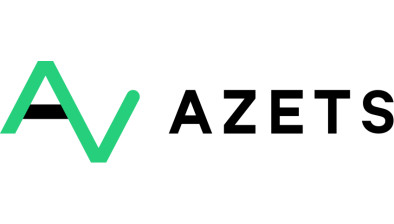Azets: R&D tax relief changes threaten SME claims

Gemma Monaghan
Upcoming revisions to the research and development (R&D) tax relief process, set to take effect on 1 August, could discourage Scottish SMEs from applying for vital financial support, according to an R&D expert.
Gemma Monaghan, head of R&D tax in Scotland at Azets, warns that the new procedures introduced by HM Revenue & Customs (HMRC) meant to reduce fraudulent claims may inadvertently deter authentic claimants. As part of its campaign to identify malpractice, HMRC will require businesses submitting R&D tax relief claims to provide more granular information than previously, and to do so in digital format.
The revised submission process will necessitate an additional form detailing costs across all qualifying projects, extensive descriptions of R&D activities and the scientific or technical advancements for at least half of the qualifying costs. It also calls for a breakdown of indirect costs, with each claim validated by a senior business officer. A separate form is required each year for every entity within a group, with both the advising agent and the officer named.
Ms Monaghan said: “The new regulations will be a shock to many businesses relying on R&D tax reliefs as they have been overshadowed by recent reductions in the value of R&D tax relief for SMEs and the proposed merger of the current R&D tax relief schemes.
“Whilst the changes to include a named officer and supporting agent will hopefully reduce fraud, the cost-to-implement is going to be a major deterrent for many SMEs and likely to lead to a dramatic reduction in investment – quite the opposite of what businesses need.”
The new ‘additional information’ form will place further administrative pressures on businesses to report R&D claims for many claimants and advisors. In addition, businesses with accounting periods starting on or after 1 April 2023, which are first time claimants or that have not made a claim in the previous three years, must also inform HMRC of the intention to make a claim within six months of the end of their accounting periods.
R&D tax relief fraud has become a major problem in recent years. HMRC accounts for 2021 to 2022 estimate the level of error and fraud within R&D tax reliefs to be £469 million or 4.9% of related expenditure. Latest figures from the ONS show that expenditure on research and development was £61.8 billion in 2020; an increase of £2.1bn since 2019.
R&D tax reliefs have a key role in incentivising R&D investment by reducing the costs of innovation. The government is extending the scope of qualifying expenditures to include the costs of datasets and of cloud computing.
Ms Monaghan concluded: “R&D tax relief stimulates technology and scientific investment and is critical to the well-being of the UK economy and to the SME sector, which is a major driver of innovation.
“These new regulations are likely to deter investment and we would encourage SMEs to ensure that they are aware of the new rules and plan to minimise the increased costs of administration.
“For those businesses undertaking genuine R&D activity, there can still be significant tax cash flow benefits to submitting a claim, however, it is now more important than ever to take good advice from a reputable claims provider.”










